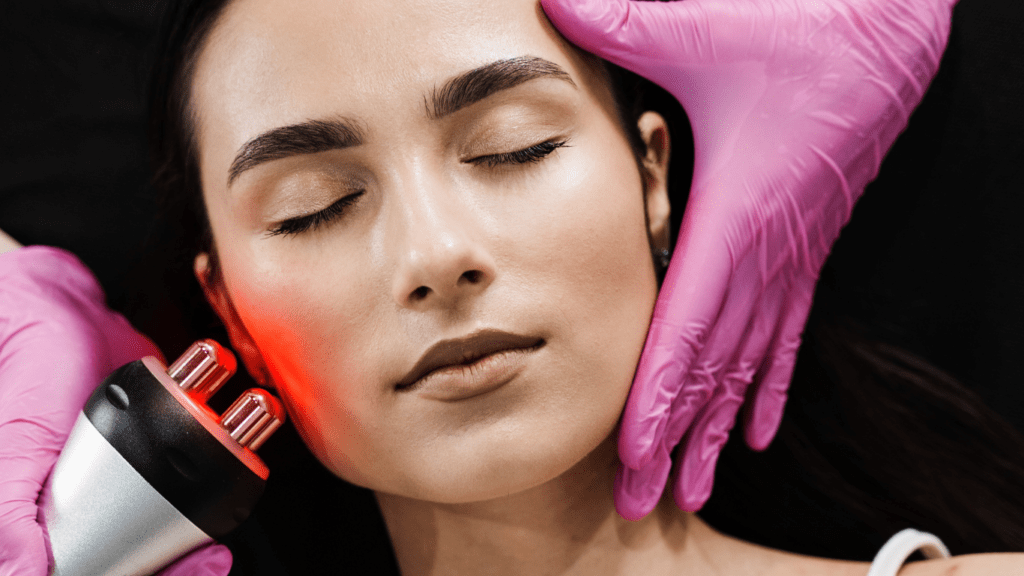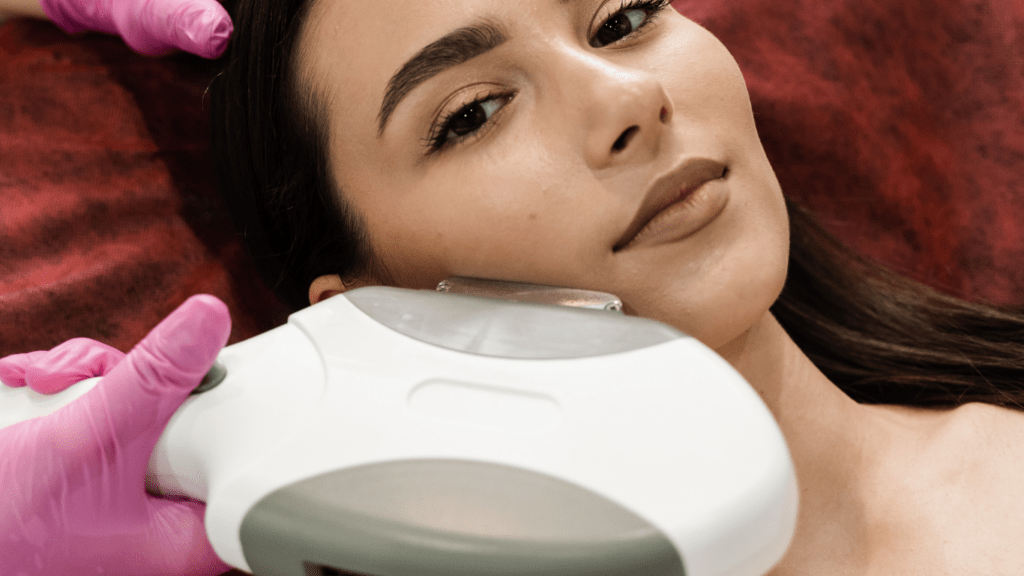The Evolution Of Skincare Technology
Skincare technology has transformed significantly over recent years, blending traditional skincare methods with cutting-edge innovations. Early skincare routines relied on natural ingredients and manual techniques. However, today’s advancements integrate high-tech solutions, providing more effective results.
Early Innovations
Ultrasonic skin scrubbers marked a shift in skincare, offering deeper cleansing than manual exfoliation. These devices used ultrasonic waves to remove impurities. Microcurrent facials followed, employing low-level electrical currents to stimulate facial muscles, enhancing skin tone and texture.
Rise Of Smart Devices
The introduction of smart devices revolutionized skincare. AI-powered skin analyzers, such as the Foreo Luna, scan skin to provide personalized product recommendations. These devices detect issues like dryness, oiliness, and acne, ensuring tailored treatments.
LED Therapy Masks
LED therapy masks became popular for their ability to target specific skin concerns with different wavelengths of light. Red light stimulates collagen production, blue light kills acne-causing bacteria, and yellow light reduces redness. These masks offer convenient, non-invasive treatments at home.
App-Integrated Solutions
Many skincare devices now connect with apps, allowing users to track progress, receive tips, and customize routines. For example, the Neutrogena Skin360 app scans your face to analyze skin health, offering advice on products and routines. This integration ensures a data-driven approach to skincare.
Future Trends
Expect further integration of AI and IoT in skincare, with devices becoming more sophisticated and personalized. Augmented reality (AR) mirrors might provide virtual skincare consultations, and genetic testing for bespoke skincare regimens could become mainstream. These trends point to a future where technology and skincare are inseparable.
Key Smart Devices Transforming Skincare
Smart devices are revolutionizing the skincare industry by enhancing efficiency and personalization. Below are some critical categories of these devices.
Cleansing Gadgets
Devices like the Foreo Luna use sonic pulsations to deep clean pores. By eliminating more dirt and oil compared to manual cleansing, they provide a thorough cleanse. Silicone bristles in these gadgets are gentle on skin yet effective in exfoliating dead cells. Smart cleansing brushes connect to apps, allowing users to track skin condition and receive customized cleaning routines.
Anti-Aging Devices
Anti-aging devices utilize technology to firm skin and reduce wrinkles. Microcurrent facial devices, such as the NuFACE Trinity, stimulate facial muscles to boost collagen production. Radiofrequency tools heat the skin’s deeper layers to promote tightening and lifting. These devices often feature app integration, offering treatment plans tailored to the user’s skin profile.
Acne Treatment Tools
LED therapy devices target acne by using specific wavelengths of light. Blue light effectively kills acne-causing bacteria, while red light reduces inflammation and promotes healing. Tools like the Neutrogena Light Therapy Acne Mask use this technology to treat acne without harsh chemicals. Acne treatment devices frequently include mobile app connectivity, enabling users to monitor their skin’s progress and adjust treatment intensity.
Benefits Of Using Smart Skincare Devices

Using smart skincare devices affects beauty routines dramatically. These devices deliver precision and personalization, which traditional methods can’t match.
Customized Skincare Routine
Smart skincare devices cater to individual needs. For example, AI-powered skin analyzers assess:
- skin type
- texture
- hydration levels
Based on this data, they recommend products that target specific concerns like dryness or acne. This customization ensures more effective, tailored treatments.
Devices like Foreo Luna offer facial cleansing that adapts to changing skin conditions. The result is a routine that evolves with my skin, providing consistent and optimal care.
Data-Driven Results
Leveraging data enhances skincare efficiency. Devices record comprehensive skin data over time, offering insights into how skin responds to treatments. For instance, LED therapy masks use different light wavelengths to treat issues like premature aging or hyperpigmentation. Data tracking confirms the effectiveness of these treatments.
Integration with apps amplifies benefits. Apps monitor progress, log changes, and suggest adjustments. This evidence-based feedback loop enables me to refine routines for maximum impact.
Smart skincare devices deliver personalization and data precision, setting new standards for beauty routines.
User Experiences And Testimonials
Many people rave about their improved skin after using smart devices.
- Jessica, a 34-year-old from New York, shared her positive results from using the Foreo Luna. She noticed clearer skin and fewer breakouts within weeks. Jessica mentioned that the device’s app recommendations aligned well with her routine.
- Another user, Mark, a 40-year-old in Los Angeles, found significant benefits from an LED therapy mask. He reported reduced fine lines and a more even skin tone after consistent use. Mark appreciated how the device’s different light settings targeted his specific skin issues.
- Sarah, a 29-year-old beauty blogger, praised an AI-powered skin analyzer for its accuracy. She noted that it provided personalized product recommendations that genuinely improved her skin’s texture and hydration levels. Sarah emphasized that the analyzer’s data-driven insights helped her make more informed choices about her skincare products.
- Emma, a 25-year-old student, hailed the advantages of app-integrated acne treatment tools. She experienced fewer breakouts and quicker healing times due to the LED light therapy. Emma liked tracking her progress through the app, which kept her motivated and informed about her skin’s health.
These testimonials illustrate how smart devices personalize skincare routines, making them more effective. Users consistently highlight the tailored recommendations, improved skin conditions, and the convenience of app integrations as key benefits.
Future Trends In Skincare Technology
Advancements in AI and IoT continue to drive innovation in skincare technology. Augmented reality (AR) mirrors are emerging as a new trend, enabling virtual consultations and real-time skin analysis. These mirrors offer users the ability to see potential outcomes of treatments or products before trying them, enhancing decision-making.
Genetic testing is gaining traction, providing personalized skincare regimens based on an individual’s DNA. This approach identifies specific skin needs and potential issues, allowing for highly targeted treatments. Companies like SkinDNA offer kits for home use, making genetic-based skincare accessible.
3D printing technology allows for customized skincare solutions, from tailor-made face masks to personalized makeup compositions. By using skin analysis data, 3D printing can produce products that match an individual’s unique skin profile, enhancing efficacy and satisfaction.
Wearable skincare tech is another area poised for growth. Devices like smart patches monitor skin health parameters, alerting users to changes in hydration levels or exposure to harmful UV rays. This real-time monitoring supports proactive skincare management.
Virtual reality (VR) applications are also on the rise. VR can simulate different skincare scenarios, educating users about proper techniques and product applications. This immersive approach increases user engagement and knowledge retention.
Nanotechnology holds promise for developing advanced skincare formulations. Nanoparticles can penetrate deeper skin layers, delivering active ingredients more efficiently. Brands such as L’Oréal are already exploring this area to enhance product performance.
Environment-responsive skincare tech is emerging, with products adapting to changing environmental conditions. For example, climate-specific moisturizers adjust their formulation based on humidity and temperature, providing optimal skin protection.
These future trends indicate a shift towards increasingly personalized, data-driven skincare solutions. By integrating advanced technologies, the skincare industry aims to offer more precise, effective, and user-centric products.



